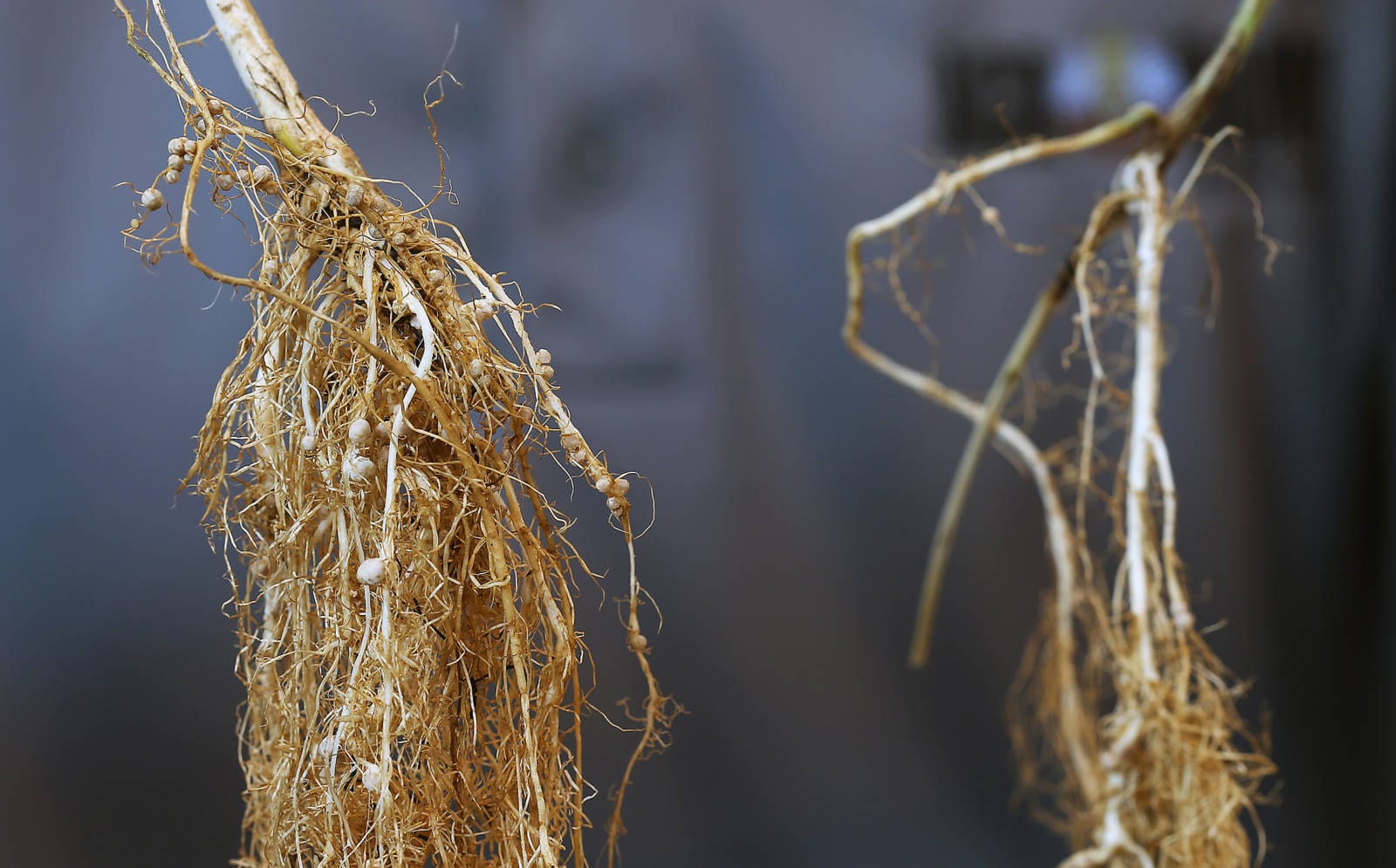According to a press release from Purdue University, agronomists may have identified a process that may one day lead to higher-yielding soybean plants that are more efficient in absorbing nitrogen – a chemical that is central in plant growth. According to Michigan State University Extension, soybean plants obtain up to 70 percent of their nitrogen requirements through the development of nodules (rhizobia bacteria colonies) living in the plants root system. Nitrogen is an important component in the plants’ process of creating photosynthesis for growth, and signs of low nitrogen levels result in yellowing of the leaves and stunted plant growth.
Research at Purdue University led by Jianxin Ma, a Professor of Agronomy, reported the discovery of a process that would potentially increase nodule formation in soybean roots by suppressing natural genes in the plant that suppress nodule formation. If these genes are suppressed, then greater nodule development could allow plants to absorb greater amounts of naturally occurring nitrogen from the environment and would therefore minimize nitrogen boosts to the soil via fertilizer applications. The studies are preliminary but, if commercialized, this process would mean that farmers could benefit from naturally occurring nitrogen in the air while saving money on input requirements and limiting potential environment concerns attributed to nitrogen fertilizer leaching. Dr. Ma’s work is just one example of the critical work being done at United States’ land grant universities towards feeding the world through more sustainable agronomic practices.
Click here to read the press release from Purdue University.

